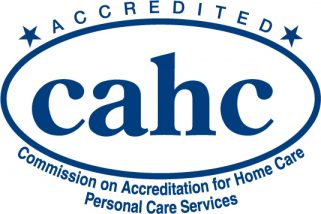Staying hydrated during the colder months can be a challenge for seniors, especially when water intake often decreases. This article provides valuable winter hydration tips for seniors with high water content foods, offering practical solutions to promote health and well-being.
Winter hydration tips for seniors with high water content foods include eating soups with broth, incorporating water-rich fruits like oranges, and adding hydrating vegetables such as cucumbers and celery to meals. These options provide essential fluids and nutrients to maintain hydration and health.
- Why Hydration Is Vital for Seniors in Winter
- High Water Content Foods That Boost Hydration
- Simple Soup Recipes Seniors Will Love
- Winter Hydration Tips for Seniors: Practical Strategies for Caregivers
- Making Hydration a Habit: Tips for Long-Term Success
- Ensuring Winter Hydration for Seniors: Simple Steps for a Healthier Season
Key Takeaways:
- Recognizing the importance of hydration for seniors helps prevent health risks. High water content foods offer a simple, effective solution.
- Incorporating high water content foods makes hydration simple and supports overall health.
- Soups are a versatile and delicious way to ensure hydration while offering comforting meals for seniors.
- Caregivers can simplify hydration by planning meals, monitoring signs of dehydration, and offering a variety of options.
- Long-term hydration success is built through enjoyable habits and social engagement that integrate fluids into daily life.
These simple tips are just the beginning of how seniors can stay hydrated during winter. Keep reading for more insights, including easy soup recipes and practical strategies to ensure hydration without relying solely on drinking water.
Why Hydration Is Vital for Seniors in Winter
Proper hydration is crucial for seniors to maintain energy, support digestion, and bolster their immune systems. However, winter’s colder temperatures suppress the body’s natural thirst signals, making dehydration a common risk.
According to the National Council on Aging, dehydration can lead to serious complications such as urinary tract infections, kidney problems, and confusion in seniors. Maintaining hydration becomes even more critical during winter when other health conditions like arthritis and respiratory issues are exacerbated.
These winter hydration tips for seniors emphasize that hydration doesn’t always have to come from drinking water. Integrating high water content foods into meals can help maintain fluid levels while providing essential nutrients. This approach makes hydration easier and more enjoyable, particularly for seniors who might struggle to drink sufficient amounts of water.
High Water Content Foods That Boost Hydration
High water content foods play a pivotal role in winter hydration. Not only do they add variety, but they also help seniors avoid dehydration more easily. Winter hydration tips highlight the importance of incorporating these foods into daily meals:
- Soups and Stews: Broth-based soups provide warmth and hydration, containing approximately 92% water.
- Fruits: Oranges (88% water), strawberries (91% water), and watermelon (92% water) are perfect for supporting hydration during the colder months.
- Vegetables: Cucumbers, celery, and zucchini all contain about 95% water and are nutrient-dense, hydrating options.
- Yogurt: A great source of hydration with added probiotics to support digestion and overall gut health.
These foods are simple to prepare, making them ideal for seniors with limited energy or mobility while providing essential hydration and nutrition.
Simple Soup Recipes Seniors Will Love
Soups are one of the best ways to boost hydration while delivering warmth and comfort during winter. They are also easy to prepare, making them ideal for seniors or caregivers looking for nutritious, hydrating meals. Winter hydration tips for seniors often emphasize the importance of including soups in their diet for both hydration and essential nutrients. Here are two simple recipes to try:
Vegetable Broth Soup
- Ingredients: Carrots, celery, zucchini, onion, and vegetable broth.
- Instructions: Sauté vegetables in a bit of olive oil, add broth, and simmer for 30 minutes. Season with herbs like parsley or thyme for added flavor.
Chicken and Rice Soup
- Ingredients: Chicken breast, brown rice, celery, carrots, and chicken broth.
- Instructions: Cook chicken and rice separately. Combine with chopped vegetables and broth, then simmer until tender.
Batch cooking these soups provides convenient, hydrating meals throughout the week, supporting both comfort and nutrition for seniors.
Winter Hydration Tips for Seniors: Practical Strategies for Caregivers
Maintaining hydration during winter is vital for seniors, and caregivers play a key role in meeting this goal. Winter hydration tips for seniors highlight the importance of combining high water content foods with simple routines.
- Encourage Regular Fluid Intake: Set reminders for sipping fluids throughout the day, offering herbal teas or warm broths.
- Incorporate Hydrating Foods: Add water-rich fruits like oranges and vegetables like cucumbers to meals. Soups and stews provide warmth and hydration.
- Plan Hydration Around Meals: Encourage small sips of water before or during meals to create a habit.
- Monitor Hydration Levels: Watch for signs like dry mouth or dizziness, as seniors may not recognize these symptoms.
- Make Hydration Accessible: Provide lightweight bottles or cups and keep fluids within reach.
These strategies simplify hydration, ensuring seniors stay healthy and comfortable during the winter months.
Making Hydration a Habit: Tips for Long-Term Success
Long-term hydration success for seniors relies on creating enjoyable and sustainable habits. Winter hydration tips emphasize incorporating fluids into daily routines to make hydration second nature.
Encourage seniors to drink fluids they enjoy, such as flavored water, herbal teas, or warm broths, to keep them engaged in hydration efforts. Pairing hydration with routine activities—like having water while watching TV or after a short walk—can reinforce consistency.
Social engagement also supports hydration habits. Caregivers and family members can share a cup of tea or prepare hydrating meals together, turning hydration into a meaningful shared experience.
According to the National Institutes of Health, adults who stay well-hydrated appear to be healthier, develop fewer chronic conditions, and live longer than those who may not get sufficient fluids.
Ensuring Winter Hydration for Seniors: Simple Steps for a Healthier Season
Winter hydration is essential for maintaining senior health, and high water content foods provide a simple, effective solution. Soups, fruits, and vegetables offer hydration and nutrients while being easy to incorporate into daily routines. By adopting these tips, families and caregivers can ensure seniors stay healthy and hydrated during winter.
At Anita’s Angels, Inc., we’re here to provide support tailored to your loved ones’ needs. Whether it’s meal preparation or hydration strategies, our compassionate in-home care services are designed to give you peace of mind and enhance the quality of life for your family members. Remember, we are Families Helping Families. Call us at 908-788-9390 to see how we can help assist you and your family.
What are the early signs of dehydration in seniors during winter?
Early signs of dehydration during winter include dry mouth, fatigue, dizziness, dark-colored urine, and headaches. Seniors may also experience confusion or a sudden drop in energy levels. Recognizing these symptoms early can help prevent more severe complications.
How can seniors with limited mobility stay hydrated during winter?
Seniors with limited mobility can stay hydrated by keeping water and hydrating snacks within easy reach. Caregivers can assist by offering hydrating meals like soups or by using lightweight, spill-proof water bottles. Scheduled hydration breaks can also help maintain consistent fluid intake.
Are there specific drinks seniors should avoid for hydration?
Yes, seniors should limit beverages like coffee, sugary sodas, and alcohol, as these can lead to dehydration. Instead, they should focus on hydrating options such as herbal teas, water infused with fruits, or low-sodium broths that provide both fluids and nutrients.






